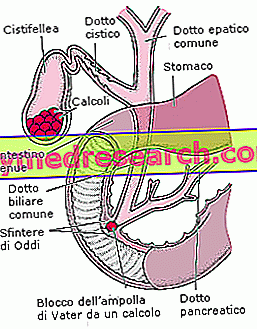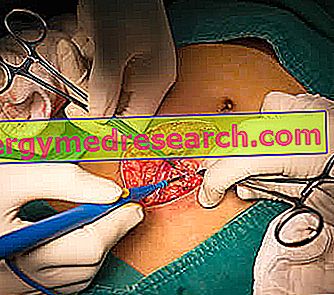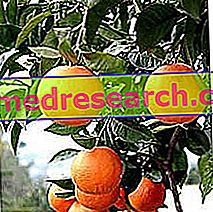Mucolytics: What are they?
Mucolytics are natural or synthetic drugs capable of fluidizing the mucous secretions of the respiratory tract, directly altering the composition. By reducing the viscosity of the mucus, these medicines promote their elimination outside (expectoration) through coughing and involuntary ciliary movements of the respiratory epithelium.
Mucus: Functions and Diseases

Among the numerous functions of bronchial mucus we recall the protection from microbial insults, from inhaled irritants and from dehydration.
During respiratory diseases of an infectious and inflammatory nature, there is a hypersecretion of mucus by goblet cells and submucosal glands. Furthermore, the mucus changes its composition, becoming more viscous and elastic, trapping micro-organisms and products of local inflammation. The result is a reduction in the mucociliary clearance, through which the cilia transport secretions into the nasopharynx, where they are removed by swallowing. Thus the typical fat or "productive" cough arises (because it is accompanied by the presence of phlegm), in an attempt to expel the secretions that form in the lung and the foreign substances trapped in them. The presence of bacteria is signaled by the yellowish color of the mucus expelled by the patient. If the mucous secretion is particularly viscous, the mechanism jams and the subject complains of difficulty in expelling the sputum; all this results in breathing difficulties arising from the physical obstacle to the passage of air in the airways. Among other things, the elimination of phlegm is also important for the recovery of the disease, since - if retained - the bacteria trapped in viscous secretions could aggravate the infection. In such circumstances, the pharmacological action of mucolytics is therefore particularly valuable, facilitating expectoration.
Mucolytic drugs
The characteristic viscosity of the mucus depends on the concentration of the mucoproteins that compose it (fucomucine), among which the mucin glycoprotein stands out for its notoriety, but also from the presence of disulfide bridges between these mucoproteins. The most known mucolytic, Acetylcysteine (Fluimucil ®, Mucisol ®, Solmucol ®, Altersol ®), intervenes at this level, breaking the disulfide bridges, thus reducing the viscosity of the mucus; furthermore, its antioxidant properties are useful for controlling the local inflammatory process, protecting the respiratory tissue from degenerative phenomena.
N-Acetylcysteine is available in the form of tablets, tablets or liquid solutions to be taken orally (400/600 mg / day) or inhaled (aerosol).
Other medications with mucolytic activity include:
- Ambroxol (Fluibron ®, Lintos ®, Mucosolvan ®, Broxol ®, Surfolase ®): stimulates mucous secretion, also promoting a normalization of mucus viscosity. This mucolytic action is associated with antioxidant and anti-inflammatory properties. Available in the form of syrups or capsules, it is taken at a dose of 60-90 mg / day, equally distributed in 2/3 intakes, unless otherwise prescribed by a doctor.
- Bromexina (eg Bisolvon ®): increases mucus secretion from the respiratory tract, reducing the degree of viscosity and adhesiveness of catarrhal secretions; it also stimulates ciliary activity, favoring the elimination of mucus. The normal dosage is 48 mg / day (given in several doses - usually 3, orally).
- Carbocysteine (Fluifort ®, Mucocis ®, Mucolase ®, Mucostar ®, Lisomucil ®): reduces mucus secretion, acting on the muciparous glands, which reduces hypertrophy. Available in the form of syrups or capsules, it is taken at a dose of 375 mg / day, unless otherwise prescribed by a doctor.
- Erdosteine (Erdotin ®): expectorant agent derived from homocysteine, with a mucolytic and antiradical action. Available in the form of syrups or capsules, it is taken at a dose of 600 mg / day, equally distributed in two assumptions, unless otherwise prescribed by a doctor.
- Neltenexina (eg Tenoxol ®, Alveoten ®): has a mucolytic, expectorant and mucociliary clearance stimulating action; favors surfactant production. Available in the form of syrups or tablets, it is taken at a dose of 90-120 mg / day, equally distributed in three assumptions, unless otherwise prescribed by a doctor.
- Sobrerol (eg. Fuental ®, Sobrepin ®, Sopulmin ®): the mucolytic effect is due to the cleavage of the bonds that hold the mucoglycoproteins together, with the result of "breaking" also the viscosity of the mucus; moreover, it attracts water at the level of the airway mucosa, increasing the fluidity of the mucus. Available in the form of syrups or tablets, it is taken at a dose of 600 mg / day, equally distributed in two assumptions, unless otherwise prescribed by a doctor.
- Telmesteina (eg Reolase ®): mucolytic and fluidifying in acute and chronic diseases of the respiratory system. Available in the form of syrups or tablets, it is taken at a dose of 600-900 mg / day, equally distributed in 2/3 intakes, unless otherwise prescribed by a doctor.
- Thiopronine (Thiosol ®): effective as a fluidifier, bronchial antispasmodic and ciliary activity stimulator. Available in the form of syrups or tablets, it is taken at a dose of 250-600 mg / day, equally distributed in 1/2 assumptions, unless otherwise prescribed by a doctor.
Contraindications and Side Effects
All the mucolytic drugs illustrated in this article are subject to side effects and contraindications for use, for which the careful reading of the illustrative leaflet and compliance with medical indications is recommended. In general, mucolytics are contraindicated in children younger than two years, as they increase the risk of bronchial obstruction especially in this age group



